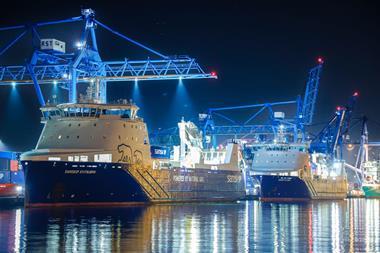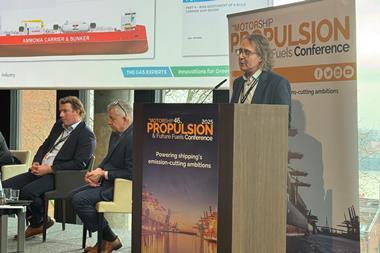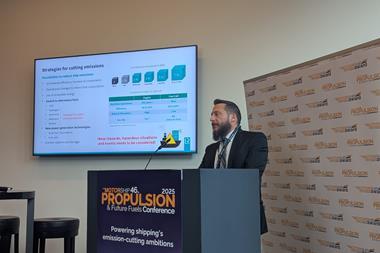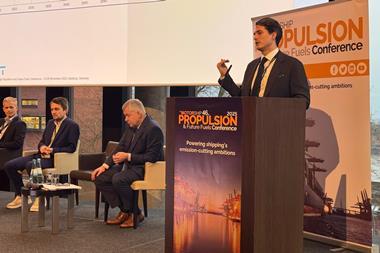At this year’s Propulsion and Future Fuels event, a panel of industry heavyweights discussed the issues surrounding widespread adoption onboard carbon capture (OCC)
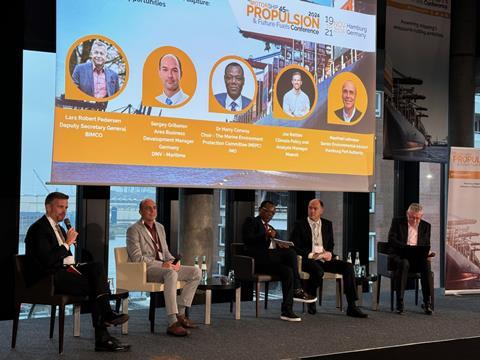
Joe Bettles, climate policy & advisory manager at Mærsk Mc-Kinney Møller Center for Zero Carbon Shipping, kicked off proceedings with some hard truths as to the extent to which OCC can reduce emissions.
“We found for a dlcc, an energy penalty of around 40% so that would take your emissions reductions from 82% down to around 75% because you’re using more, in this case, fuel oil,” he said before adding that if upstream energy is calculated, ie the well to wake methodology, the emissions savings using OCC would be even less.
Manfred Lebmeier, environmental advisor at Hamburg Port Authority, also weighed into the debate stating that there’s an issue with what shipowners do with carbon captured onboard.
“It will be a big issue in all ports that the same molecule [carbon] will be treated, handled, regulated in different ways,” he said, stating that whether someone is transporting carbon varies greatly compared to if a shipowner is planning to dump it as waste.
Harry Conway, chair of the Marine Environmental Protection Committee at the IMO, highlighted what he viewed as the main purpose of OCC. “The ultimate goal is to remove carbon from the atmosphere so you cannot capture the carbon and keep it onboard vessels,” he said.
Sergey Gribanov, area manager Germany DNV, said his company has performed feasibility studies and saw there was hope for OCC. “The technology is there but it needs to be more efficient,” he opined.
Gribanov added that economic feasibility of OCC was dependent on which regulation was being applied. His view that while EU ETS and MRV may be looking to reward OCC, the “details aren’t there needed for economical feasibility” he said.
When Lars Robert Pederson, Deputy Secretary General at BIMCO, who was moderating the discussion asked Conway when the IMO would have a framework in place for OCC, he replied: “Carbon capture moving faster than expected. Not too far away for framework, maybe 2027,” before adding that it’s “low hanging fruit” in terms of ways shipping can reduce emissions.
Conway added “innovation will drive the whole process” as there appeared to be consensus that OCC was a good idea with more work needed to do.

